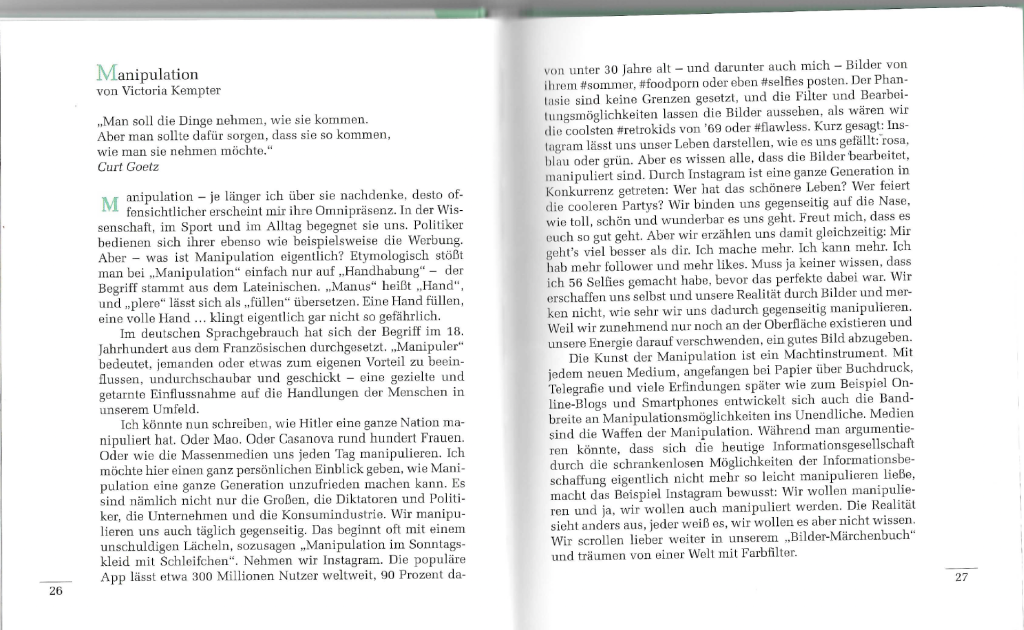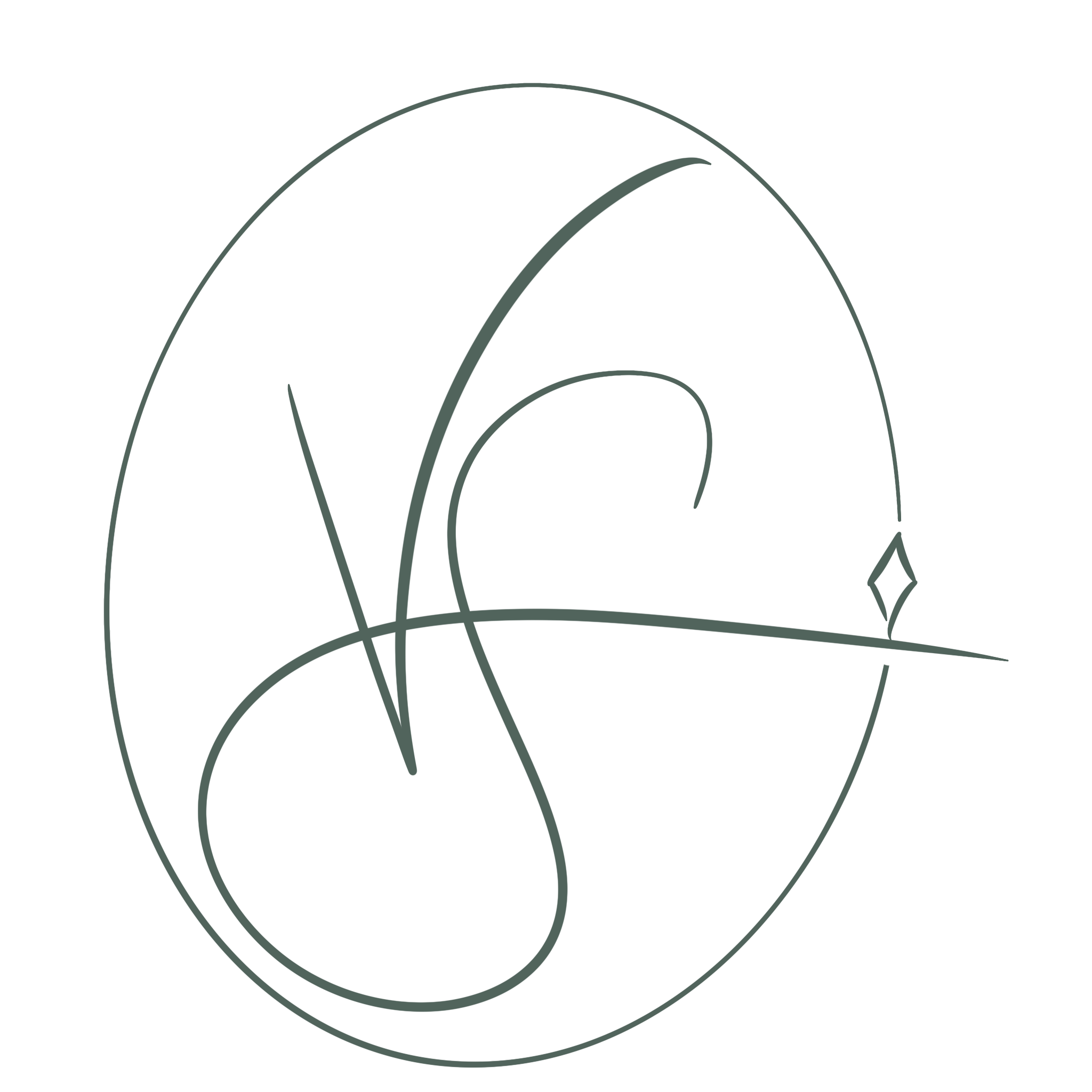This piece was written for and published in the ‘M’ book of the ‘Zeitlupe’ series.
This text was originally written in German and translated for other purposes later.
In 2000 my father began to dedicate one book to each letter of the alphabet. ‘M’ was published in 2015.
The longer I sit in the university library and think about it, the more obvious its omnipresence seems to me. In science, in sports, and in everyday life, it ambushes us. Politicians use it as much as the commercial breaks on reality TV. But what is it actually? Etymologically, “manipulation” simply comes across as “handling” – derived from Latin, of course. “Manus” means “hand” and “plere” can be translated as “fill”. To fill a hand, a full hand… doesn’t actually sound that dangerous. In German usage, the term caught on in the 18th century from French. “Manipuler” is understood as influencing someone or something to one’s own advantage, obscurely and skillfully – not très chic at all! A purposeful and disguised influence on the actions of those around us.
I could now go on about how Hitler manipulated an entire nation. Or Mao. Or Casanova around a hundred women. Or how the big, bad industry of mass media manipulates us every day. But I decided to give this a personal spin. An insight on how manipulation can lead to dissatisfy an entire generation. After all, it’s not just the big guys, the dictators and politicians, the corporations and the consumer industry. We ourselves manipulate each other on a daily basis. It often starts with an innocent smile, manipulation in a Sunday dress with bows.
Take Instagram. The popular app lets its 300 million users worldwide, 90% of them under 30 years old and including yours truly, post pictures of their #summer, #foodporn or just #selfies. There are no limits to imagination; the filters and editing options make the pictures look like we are the coolest #retrokids from ’69 or #flawless. In short, Instagram lets us portray our lives however it suits us at the moment. Pink, blue or green. But everyone knows that the pictures are edited, manipulated. Right?
Through Instagram, an entire generation has entered into a competition: Who has the more beautiful life? Who’s at the cooler parties? Who has the hipper friends? We show each other how great, beautiful, how wonderful we are. Happy you’re happy.
But at the same time, we tell each other: ‘I’m doing much better than you. I do more. I can do more.’ Not only that, but also: ‘I have more followers and more likes. (And no one needs to know that I took 56 selfies before I got the perfect one.’ We create our selves and our reality through images, and don’t realize how much we manipulate each other through them. We increasingly exist merely on the surface. We waste our energy on polishing our perfect good image.
The art of manipulation is a means to power. With each new medium, starting with paper, printing, telegraphy and – a few inventions later – online blogs and smartphones, the range of manipulation possibilities develops into infinity. Media become the weapons of manipulation. While one could argue that today’s information society wouldn’t be as easily manipulated anymore due to the limitless possibilities of obtaining information, the example of Instagram makes us aware: we want to manipulate and yes, we also want to be manipulated. The reality is different, we know it. But do we want to know it? Or do we prefer to keep scrolling through our picture storybook and dream of a world of color filters…


